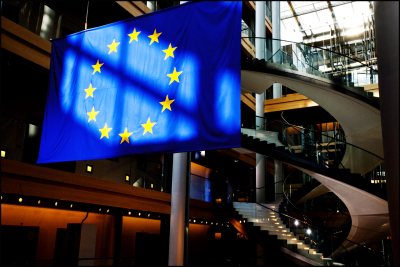In this second edition of our web series on tech lobbying, we have analysed the activities of Google, Facebook, Amazon and Apple in Ireland.
The results shows a tendency by these major tech companies to lobby at the national level to influence decisions taken in Brussels. Recent news already highlighted the extent of Facebook’s lobbying activities around the EU, most notably in attempting to water-down data-protection rules. Leaked documentation showed a seemingly close relationship between the Irish government and the social media giant when it comes to EU affairs. While not surprising in itself – member states eagerly defend the economic interests of companies present on their soil – our analysis highlights once again the need for greater lobby transparency at both the national and EU-level to ensure full transparency and accountability of EU decision-making.
The “Big Four” lobbying activities in Ireland
Since the introduction of the Irish Regulation of Lobbying Act in 2015, any entity that is involved in lobbying must declare their activities on a central register. This is defined as any relevant communication, provided in written, oral or in person to so-called designated public officials with the purpose of influencing a relevant policy matter. By analysing the activities declared by Google, Facebook, Apple and Amazon, we found that on average 34,5% of their lobby communications concerned EU affairs. This can be as high as half of all declared activities for Google and as low as 15% for Amazon. Both data-protection and the completion of the digital single market take the top spot in terms of EU-related subjects lobbied on. Given that the digital portfolios are by far the #1 lobbying issue in Brussels, lobby transparency at national level is essential for understanding how the internet will be regulated in the future.
Graph 1: Share of EU-related lobbying activities as declared in the Irish lobby register
Lobby regulation in the EU is incomplete
Lobby regulation at national level is always welcome. Citizens, journalists and civil society organisations have a right to know who tries to influence public policy and hold their elected representatives to account. Despite the best of intentions, lobby regulations can often omit key information. The Irish case, for example, does not require the disclosure of financial information as is the case with the EU lobby register. Our own analysis had shown that Silicon Valley companies started to take EU-law making seriously by significantly increasing their expenditure. New data shows that on average, the EU-lobby expenditure of the big four has increased by 320% since 2014. Still, this financial data provides only a partial picture of the true expenditure on lobbying activities in the EU. National registers containing full disclosure of expenditure, interests represented and lobby meetings would complement the information published in the EU register.
Graph 2: EU lobbying expenditure lobbying by Google, Amazon, Facebook and Apple since in 2014 (in euros)
Unfortunately, lobby transparency in Member States remains patchy at best, with Ireland taking a clear lead in terms of disclosure requirements and sanctioning mechanism for those breaching the Codes of Conduct. Out of the 28 EU countries, only 8 have some form of legislation on lobbyists, the other countries having either non-existent rules or voluntary mechanisms that fail to enforce lobby transparency. The EU institutions could bear a specific responsibility by ensuring that its own register abides by the highest standards for lobby regulation.
Graph 3: Countries with legislation on lobbying in the EUThe EU institutions could bear a specific responsibility by ensuring that its own register abides by the highest standards for lobby regulation. This starts with ensuring that all institutions participate meaningfully in the register by publishing meetings with key decision-makers and enforcing the mandatory provision to only meet registered lobbyists. This would be especially true for the Council, where government often adopt positions that are heavily influenced by domestic lobbyists. However, as governments across the EU gradually adopt national registers, the EU could also call for a minimum set of standards. This could be complemented by the various other initiatives in setting standards and sharing best practices such as Open Government Partnership. This will not only allow society to fully map out the lobbying activities of those seeking to influence decision-making in Brussels, but also benefit all types of lobby organisations by lowering the threshold for compliance in the Single Market.






